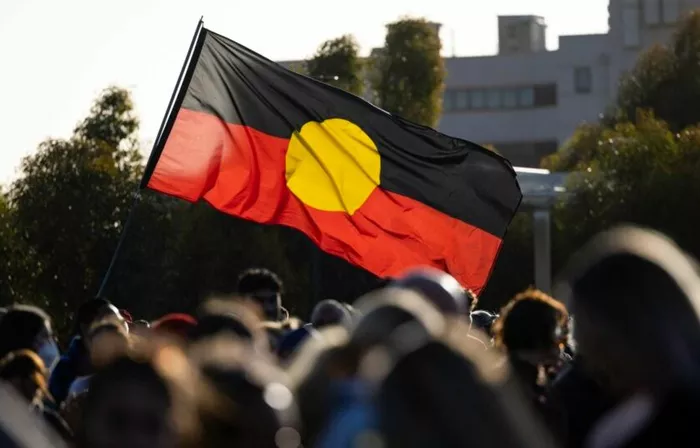Renowned historical fiction author Paul Rushworth-Brown has released his latest novel, Outback Odyssey, which not only captivates readers with its gripping narrative but also sparks a timely conversation about Australia’s national identity. Set against the backdrop of 19th-century Australia, the novel explores themes of reconciliation, unity, and cultural recognition, raising questions about the country’s national symbols—particularly its flag—and how they can reflect its diverse heritage.
Outback Odyssey follows the journey of Jimmy, a Yorkshireman who leaves Britain for a new life in Australia. His adventure takes an unexpected turn when he is mentored by the Munarrakalai First Nations people, who teach him the cultural and spiritual wisdom of the land. As Jimmy embarks on a quest to recover a lost treasure, Wiberg’s gold, stolen from the SS Avoca in 1877, he uncovers a far greater treasure: a profound understanding of history, identity, and the importance of belonging.
The novel’s release comes shortly after the controversial outcome of the 2023 Australian Indigenous Voice referendum. Despite a rejection of the proposed constitutional recognition for Indigenous Australians, Outback Odyssey aligns with the ongoing national conversation about Australia’s struggle to reconcile its colonial history with the rich heritage of its First Nations people.
A Tale of Symbols and National Reflection
Throughout the novel, Rushworth-Brown masterfully intertwines history with fiction, using allegory to highlight Australia’s complex journey toward reconciliation and self-identity. The symbolism in Outback Odyssey echoes the challenges and aspirations of the nation today:
The Australian Outback – Represents both opportunity and struggle, mirroring the nation’s challenge in embracing a unified identity that acknowledges its First Nations peoples.
Wiberg’s Gold – Symbolizes ambition, justice, and the ongoing need to amplify the voices of Indigenous Australians beyond mere symbolic gestures.
The Journey from Yorkshire to Australia – Reflects the broader narrative of integration and the nation’s effort to incorporate Indigenous perspectives into its national consciousness.
Aboriginal Mentors – The teachings of the First Nations stockmen underscore the enduring wisdom of Indigenous cultures, essential for shaping Australia’s future.
Struggle for Recognition – Just as Jimmy must prove his place within the community, Indigenous Australians continue their fight for political recognition and respect.
True Wealth – The novel teaches that real success lies in knowledge, unity, and mutual respect—a critical message for a nation striving for inclusivity.
A Call for a New National Flag
As national debates around the future of Australia’s flag continue to unfold, Outback Odyssey offers a poignant perspective on the power of symbols in shaping national identity. Through its exploration of the land, culture, and history, the novel encourages Australians to reflect on how their national symbols can better represent the country’s true story.
“I wanted to tell a story that addresses Australia’s past, present, and future,” says Rushworth-Brown. “Outback Odyssey asks fundamental questions about who we are as a nation and how we choose to represent our shared history. Perhaps it’s time for a flag that tells the full story.”
Acknowledgment of Country
In keeping with his commitment to respect Indigenous heritage, Rushworth-Brown and Historium Press acknowledge the Traditional Owners and custodians of the land across Australia. They recognize the continuing connection of Indigenous peoples to the land, waters, and skies, and pay their respects to Elders, past and present. Readers should be aware that the novel and associated materials may contain images, voices, and references to people who have passed away.
As discussions surrounding Australia’s identity and symbols evolve, Outback Odyssey stands as a timely reminder of the nation’s ongoing journey toward inclusivity and true recognition of its First Nations peoples.

